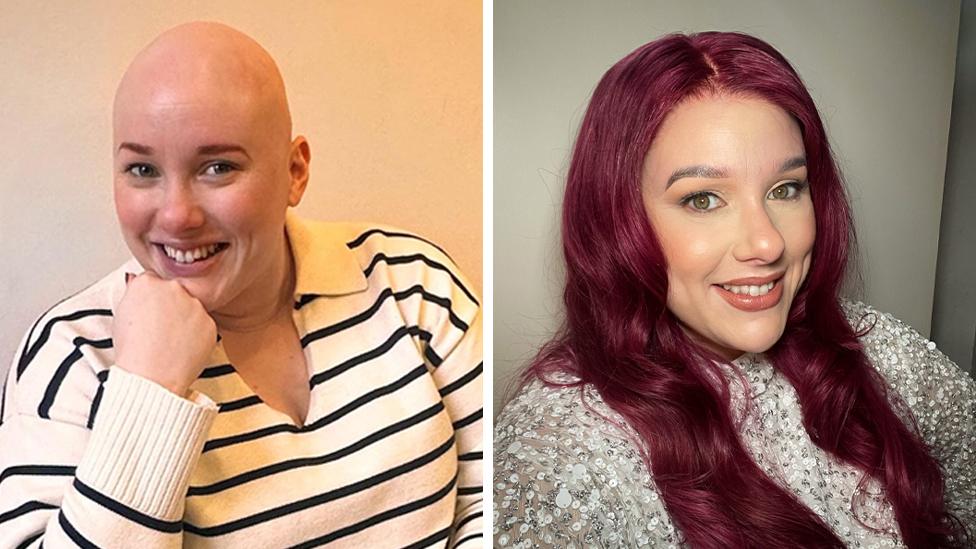First alopecia treatment recommended on the NHS
- Published
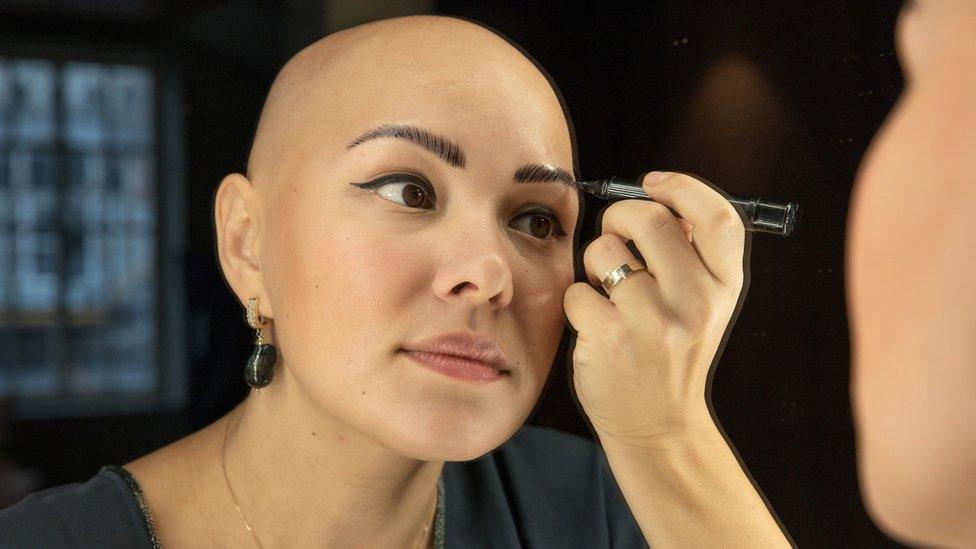
A medicine for severe hair loss, or alopecia, is being recommended on the NHS for the first time.
The daily pill, called ritlecitinib or Litfulo, could help up to 14,000 people in England, says the National Institute for Health and Care Excellence (NICE).
Scotland is currently considering whether to start offering it on the NHS too.
The drug, which is licensed to give to people aged 12 and over, helps fight inflammation to improve hair growth.
Alopecia areata is an autoimmune disease, where the body's immune system attacks the follicles of the hair, causing it to fall out.
In severe cases, hair is lost from across the body. Lack of hair on parts of the body other than the scalp, including eyelashes and eyebrows, nasal hair, and hair on the skin leaves people more vulnerable to infections and reduces their ability to regulate their body temperature.
Living with alopecia can be profoundly challenging and cause anxiety and stress. People may experience difficulty at school and in the workplace, and it can lead to social isolation and affect intimate relationships, experts say.
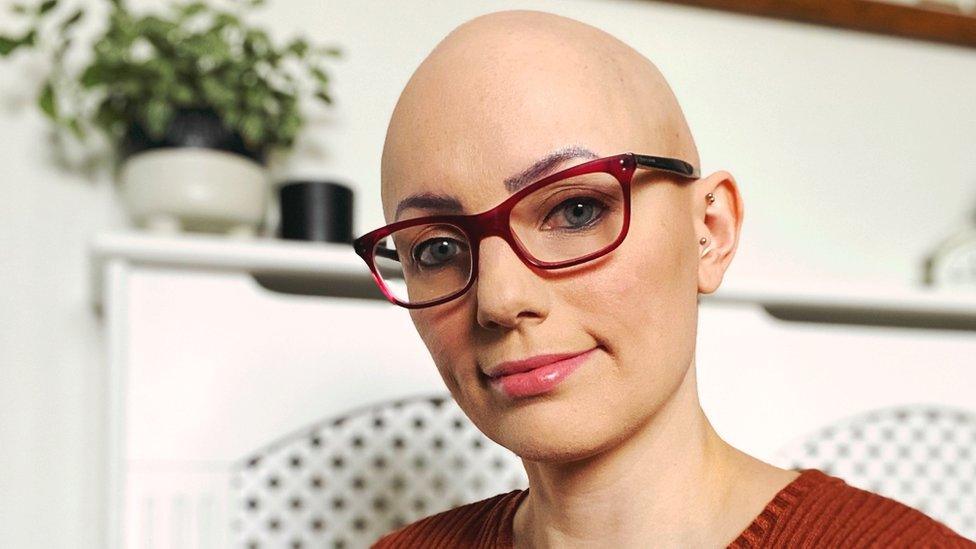
Dawn developed alopecia as a child
Dawn, who is now in her 30s, has had alopecia since childhood.
She told the BBC: "Dealing with alopecia is very much a rollercoaster of emotions, it's such an unpredictable condition that gives hope as quickly as it can take it away again.
"Living with it since I was a child, I always hid my patches, in fear of the judgement of somebody seeing a bald spot. Then, when I lost all my hair on approach to my thirties and could no longer hide it, I very much had to go through a cycle of grief. I was very withdrawn, wanting to avoid doing anything, which led to it having a huge impact on my mental health."
She says she's now "in a much better place" thanks to the support of friends and family and the charity Alopecia UK, external.
She is considering trying the drug.
"Despite being in a good place with my hair loss, it gives me an option I didn't have before, for the first time, I can have a little control over such an unpredictable condition that made me feel like I lost who I was."
NICE initially rejected the drug last year but has now reversed its decision following a public consultation, as well as receiving more information about it, including a reduced price from the manufacturer Pfizer.
Without a discount, a packet of 30 capsules would normally cost almost £1,000.
Helen Knight, director of medicines evaluation at NICE, said: "Our committee heard how severe alopecia areata can have a significant impact on people's health and quality of life.
"I'm delighted that we are now able to recommend this innovative treatment."
Sue Schilling, chief executive of Alopecia UK, said: "For far too long, patients with alopecia areata have gone without a licensed treatment option available via NHS pathways.
"If new treatments are only available privately, it becomes a case of the 'haves and the have nots', this latest NICE recommendation will go some way to address this."
She said patients still faced substantial barriers, including difficulties in getting a dermatology referral from their GP, unacceptable dermatology waiting times, and even some NHS trusts making the decision not to allow dermatology appointments for alopecia patients.
"There is no longer the excuse of there being no licensed treatment available. I urge key decision-makers within the NHS to keep referral pathways open for patients with alopecia areata," she said.
- Published29 December 2022
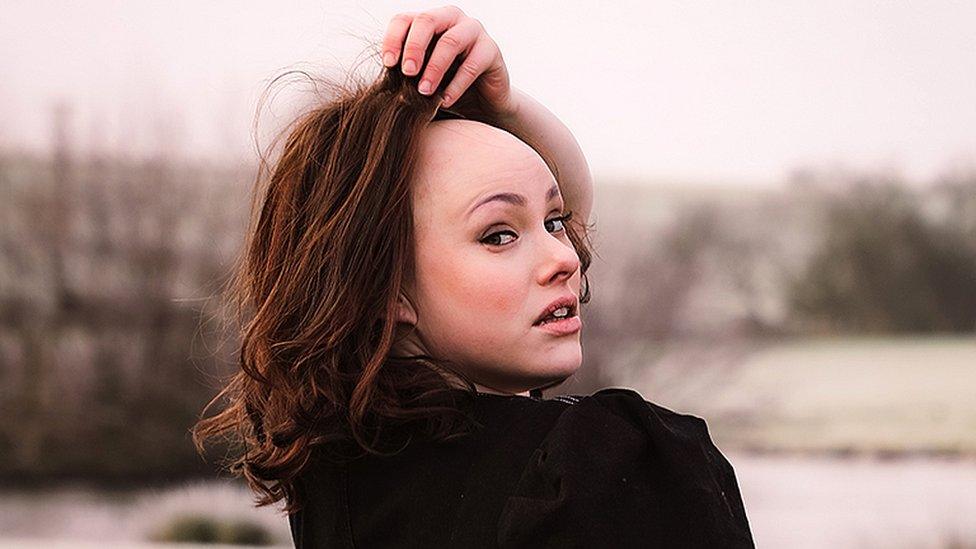
- Published31 March 2022
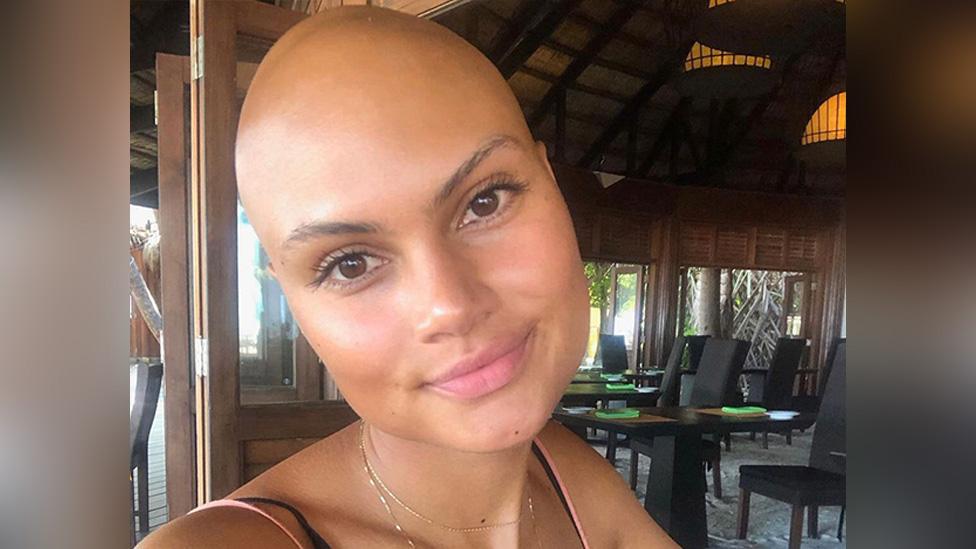
- Published9 February 2024
